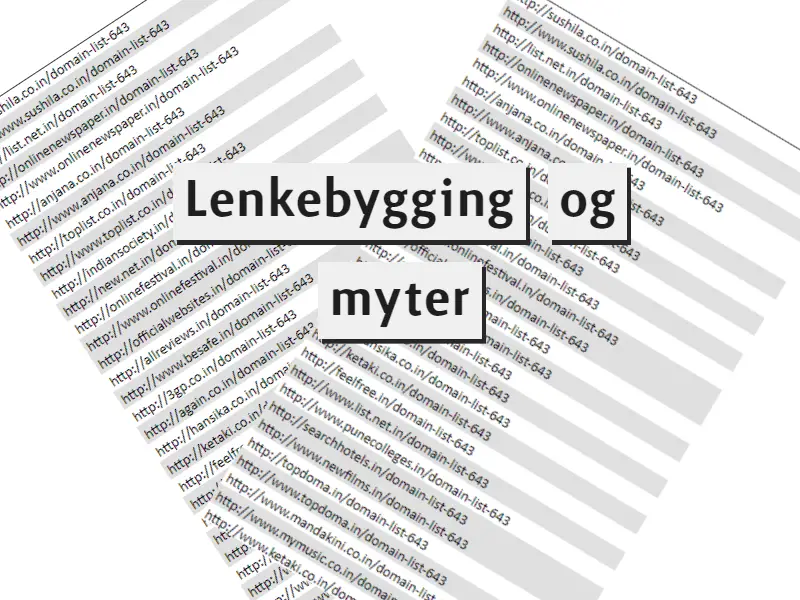If you want the content you write to rank with search engines such as Google, you should rewrite your long-tail keywords. You’ve probably read or received advice about this in search engine optimization (SEO) before.
What do we mean by long tail keywords?
Why should you write about them?
In this short article, we explain what long tail keywords are from a search engine optimization perspective.
How the terms that we create when we produce the content can help you rank higher in search engines such as Google .
We also include some examples.
What are long tail keywords?

In SEO, we distinguish between main keywords and long-tail keywords.
A long-tail keyword is more specific than a main keyword and usually, but not necessarily, consists of several words. The main keyword is a general term or generic term that many people write about.
A long-tail keyword has a more specific topic or subtopic for its heading.
Generally, less content is created on this topic.
How do they help you rank in Google?
The idea is quite simple. As mentioned above, there is less content online about long-tail keywords because fewer people have written about them. Less content means less competition!
Because the competition is not so tough, it is easier to beat other websites with content about long-tail keywords in search engines.
Additionally, you may find that it is easier to target a specific search intent with long-tail keywords. Search intent is the reason behind a search , does someone just want information or does he/she want to buy something?
Or do they want something completely different?
Example of a long tail keyword
Keyword example or key phrase is[Kokebøker Asia] . There are many booksellers, publishers and bloggers who write about various foods. If you just start with this on your website it will be almost impossible to rank. You have to compete with countless big players with loads of good content.
What you should try to focus on is a niche for your website and the articles you publish.
Finding a niche means targeting a very specific audience. You can do this by creating very tailored content, content with long tail keywords !
An example keyword on a long-tail phrase might be[Kokebøker med eksotisk mat fra Kina] .
If you write high-quality content on a specialized topic like that, you can beat the competition with these long-tail keywords.
If you’re targeting searchers who intend to buy books, you can include these terms and focus your content on answering those searches.
You can also consider adding a local search such as [hvor kan man kjøpe kokebøker med eksotisk mat fra kina i Oslo]
Long-term strategy
You might be thinking, but I want to rank for the main keyword. It gets a lot of traffic!
It does, but if you rank on page 10 for that question in Google then you won’t get much out of it.
It leads to a lot of traffic, but nothing that converts into sales or inquiries. We recommend starting with the less competitive long-tail keywords. When you have written several articles with relevant long-tail keywords and you rank well for these, you can aim for a term that comes closer to the main keyword.
Let’s go back to the example of[Kokebøker med eksotisk mat fra Kina] .
You can rewrite [nøkkelord eksempel]
- Cookbooks with exotic dishes from Asia
- Cookbooks with simple dishes to make for children
- Stories about food traditions
This way, Google will find that you have quite a lot of specialized content on these topics.
If you collect all this knowledge in a cornerstone article, for example[Kokebøker med eksotisk mat fra Kina] , and you make sure you link from all your articles with long tail keywords to this main article, you increase your chances of ranking high in the search engines.
If this works, you can start writing high-quality content about other types of cookbooks.
This will eventually bring you closer to the main keyword.
We call this a cornerstone content strategy .
Higher conversions!
Less competition isn’t the only benefit of rewriting long-tail keywords. If you focus on a niche, visitors will more easily convert into customers, newsletter subscribers, or whatever you’re targeting, especially if you cater to the search intent. Let’s say the visitors are looking for a very specific type of book.
If they land on your website, specialized in that particular kind of book, they are likely to find and buy the books they are looking for.
This is another reason to focus on the long tail! That is probably one of the reasons why we are ranked as one of Norway’s best SEO 😉
Also read the article by Rand Fishkin of Moz, Long tail SEO .







